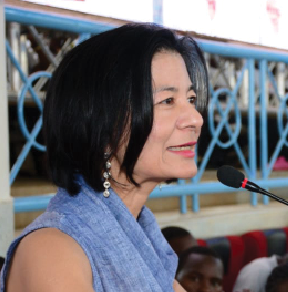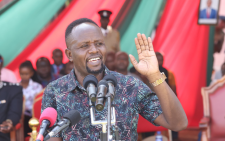Joint efforts to expand Africa’s jab production

A $45 million vaccine manufacturing initiative has been unveiled in Africa.
The Institut Pasteur de Dakar (IPD) and Mastercard Foundation rolled out the partnership named MADIBA (Manufacturing in Africa for Disease Immunisation and Building Autonomy).
The launch of this landmark collaboration in Dakar, Senegal, marks a significant step towards achieving vaccine manufacturing autonomy in Africa.
The multi-year project, aimed at developing and building a world-class workforce to support vaccine manufacturing, will establish a Centre of Training Excellence to equip talented young people, particularly young women, with specialised skills in vaccine research, manufacturing, production and distribution.
Based in Senegal, MADIBA aligns with the “Plan Sénégal Émergent” (Emerging Senegal Plan) to manufacture half of the country’s pharmaceutical products by 2035 as well as African Union’s ambitious target to fulfill 60 per cent of the continent’s vaccine needs by 2040.
As a blueprint for future vaccine manufacturing facilities across Africa, MADIBA marks a crucial first step towards vaccine self-sufficiency in Africa.
Analysis by a UN agency shows the link between lack of vaccine equity and widening poverty gap. At the time of publication of the UNDP report in March 2022, some 2.8 billion people around the world— most of them in the poorer countries— were still waiting to get their first shot of Covid-19 vaccine, over two years after the pandemic broke out, and vaccines were in the market.
Data from the Global Dashboard of Vaccine Equity, developed by UNDP, WHO and University of Oxford, show how vaccine inequity not only affects poorer countries disproportionally in terms of health, but also have a profound and lasting impact on their socio-economic recovery.
Most of the vulnerable countries are found in sub-Saharan Africa, including Burundi, the Democratic Republic of the Congo and Chad, where less than one per cent of the populations are fully vaccinated. In total, 50 out of 54 countries in Africa were off-track to achieving the 70 per cent target as of February 2022.
This vaccine inequity goes against UN Sustainable Development Goal (SDG) 1, which seeks to eradicate extreme poverty for all people everywhere by 2030, and SDG 3, which seeks to ensure healthy lives and promote well-being for all at all ages.
Moreover, Africa learnt hard lessons at the height of Covid, when it became a target of vaccine nationalism. A study published last August in the Rand Health Quarterly, defines vaccine nationalism as the tendency by countries to push to get first access to vaccines. The practice also involves hoarding key components for vaccine production.
But things are already beginning to look up for Africa.
In February— in the lead up to the unveiling of IPD and the Mastercard Foundation vaccine manufacturing partnership this month— Africa Centres for Disease Control and Prevention (Africa CDC) launched the Regional Capability and Capacity Centre Network, focusing on talent development for manufacturing and research, and selected IPD as its inaugural centre.
“Between 9,000 and 14,000 full-time employees will be needed across vaccine manufacturing and research roles across Africa by 2040. Africa CDC and the African Union (AU) have together called for a New Public Health Order, which will safeguard the health and economic security of the continent as it strives to meet the aspirations of Agenda 2063,” Dr Jean Kaseya, Director General of Africa CDC states.
He added: “A key pillar of this vision seeks to expand the local manufacture of vaccines, diagnostics, and therapeutics. Presently, less than one per cent of vaccines administered on the continent are manufactured locally. This places a great financial burden on the health systems of African countries and reduces their ability to respond to pandemics and other health crises.”
Through the MADIBA project, IPD will develop a specialised training curriculum for Africa. This aims to train cohorts of talented young Africans, with a goal of enrolling 40 per cent, female.
It will also incorporate key ecosystem actors such as world-top experts, universities, and manufacturers to address development of the requisite skills required for highly specialised functions, including vaccine production, quality assurance, supply chain, procurement, and clinical trials. Graduates of the MADIBA training programme will help drive the success of other manufacturing facilities, contributing to a multiplier effect and transformation of vaccine manufacturing capabilities on the continent.
“This partnership between Mastercard Foundation and IPD will enhance human capital development for biomanufacturing in Africa. The project is a crucial pillar for vaccine equity and autonomy and a significant driver for high-skilled job creation among young and female Africans,” IPD chief executive Amadou Sall said.
“We aim to train a workforce for MADIBA and other African vaccine manufacturers, develop partnerships with African universities and promote science education among young students,” he added.
On his part, Reeta Roy, the president and CEO of Mastercard Foundation, observes: “This partnership builds on the game-changing intent of the Saving Lives and Livelihoods initiative. That is, to keep everyone safe by rolling out Covid-19 vaccinations while ensuring Africa’s long-term health security by building vaccine manufacturing expertise and workforce on the continent. In the process, our collaboration will also benefit the livelihoods of young people in Africa.”
Industry experts say the partnership will likely accelerate the development of a formally trained workforce in Africa to support vaccine manufacturing projects.
Industry experts say the partnership will likely accelerate the development of a formally trained workforce in Africa to support vaccine manufacturing projects on the continent.
It also aligns with MasterCard Foundation’s Young Africa Works strategy to en











